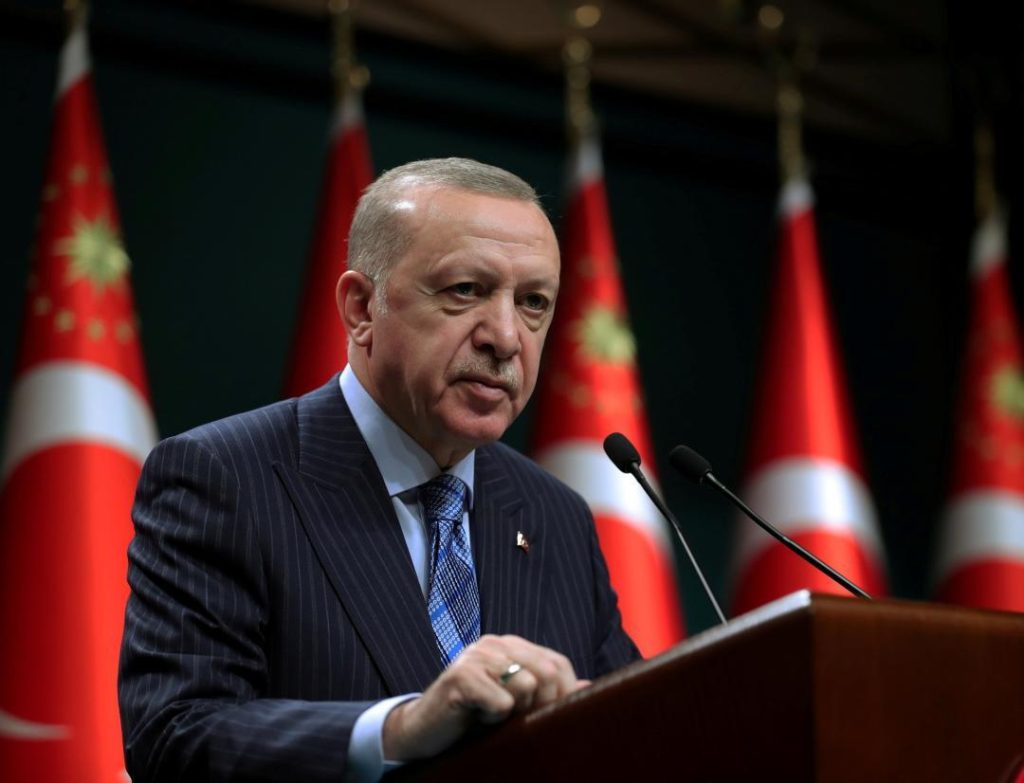
Erdogan Calls for Israel’s Destruction in Eid Wishes, Says ‘May Allah Damn Zionists’
Turkish President Recep Tayyip Erdogan has made headlines once again with his controversial remarks, this time calling for the destruction of Israel while wishing people on Eid al-Fitr. The country’s state-run news agency Anadolu quoted him as saying, “We all know what is happening in Palestine…May Allah damn Zionist Israel.”
This provocative statement has sparked outrage and concern among many, especially in the wake of rising tensions between Israel and Palestine. Erdogan’s comments are seen as a stark reminder of the deep-seated animosity between the two nations, which has been simmering for decades.
But what led to Erdogan’s outburst, and what does it say about the state of relations between Turkey and Israel? To understand the context, it’s essential to delve into the complex history of the region.
Turkey and Israel have a long history of tensions, dating back to the 1990s. The two nations had a formal alliance until 2010, when the Israeli Navy raided a Gaza-bound flotilla, killing nine Turkish activists. The incident sparked widespread outrage in Turkey, and the country subsequently terminated its diplomatic relations with Israel.
Since then, Erdogan has been a vocal critic of Israel, often using strong language to condemn its actions in the region. He has accused Israel of committing “genocide” against Palestinians and has called for international action to stop its “aggression.”
So, what does Erdogan’s latest statement say about his views on Israel? On the surface, it appears to be a straightforward call for the destruction of the Jewish state. However, it’s essential to consider the broader context and the cultural and historical nuances of the region.
In Islamic tradition, the phrase “May Allah damn” is often used to express indignation and outrage. It’s a way of cursing someone or something, rather than a literal call for divine retribution. In this sense, Erdogan’s statement can be seen as a rhetorical device, meant to convey his strong disapproval of Israel’s actions rather than a genuine call for its destruction.
However, the timing of Erdogan’s statement is also significant. The Eid al-Fitr holiday is a time of celebration and forgiveness, traditionally marked by acts of charity and kindness. Erdogan’s call for destruction, therefore, stands in stark contrast to the values of the holiday.
It’s also worth noting that Erdogan’s statement comes at a time of heightened tensions between Israel and Palestine. The Gaza Strip has been under siege for over a decade, and the situation has only gotten worse in recent years. The Israeli military has launched several major operations in the region, killing hundreds of Palestinians and destroying thousands of homes.
In this context, Erdogan’s statement can be seen as a call to action, urging his followers to support the Palestinian cause and resist Israeli aggression. It’s a way of channeling public outrage and frustration into a more productive and proactive form of activism.
But what about Erdogan’s remarks about Gazans, Hamas, and Palestinian Islamic Jihadist terrorists? He wished for “mercy upon martyrs” and “speedy recovery of veterans,” implying a strong sense of solidarity with these groups.
In Islamic tradition, the term “martyr” refers to those who have died in the pursuit of a noble cause, often in defense of their faith or community. Erdogan’s statement, therefore, can be seen as a way of honoring the sacrifices of Palestinians who have died in the conflict.
However, it’s also worth noting that Hamas and Palestinian Islamic Jihadist terrorists are designated as terrorist organizations by many countries, including the United States and the European Union. Their actions have caused harm to innocent civilians and have been widely condemned by human rights groups.
In conclusion, Erdogan’s statement is a complex and multifaceted issue that requires careful consideration of the broader context and cultural and historical nuances of the region. While it’s understandable that many would be offended by his call for destruction, it’s also essential to recognize the deep-seated animosity between Turkey and Israel and the ongoing humanitarian crisis in the Gaza Strip.
As the situation continues to unfold, it’s crucial that all parties involved work towards a peaceful resolution and a more sustainable future for the region. Only through dialogue, compromise, and a commitment to human rights can we hope to build a brighter future for all.






